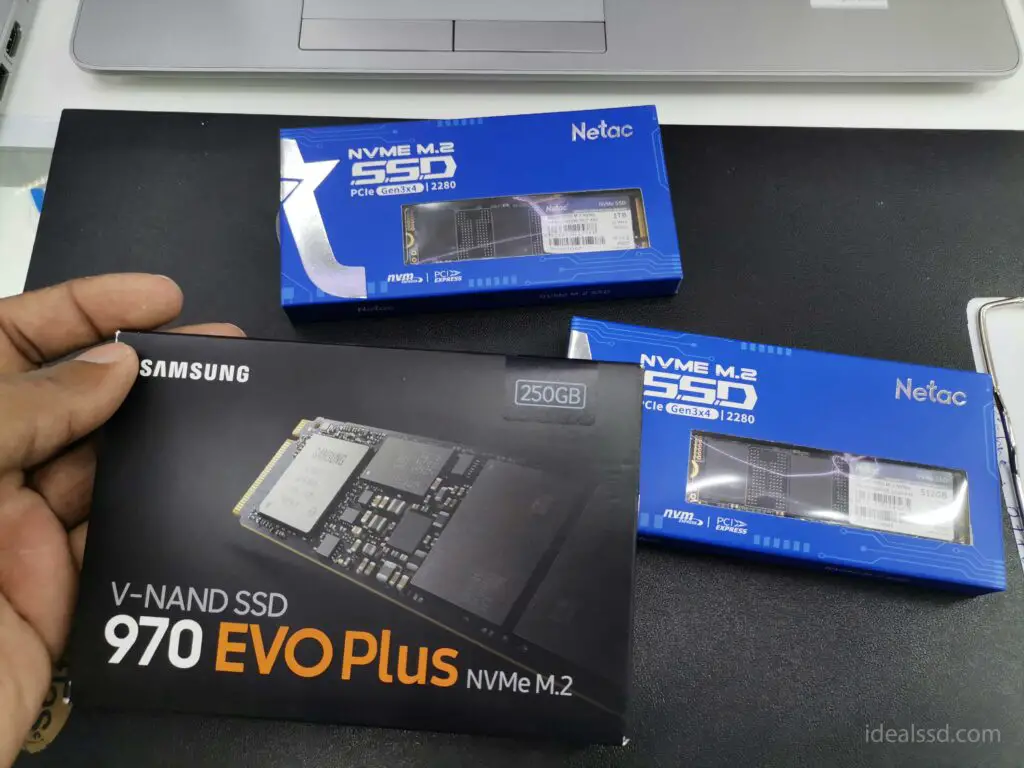What Happens If SSD Falls? The Hard Truth
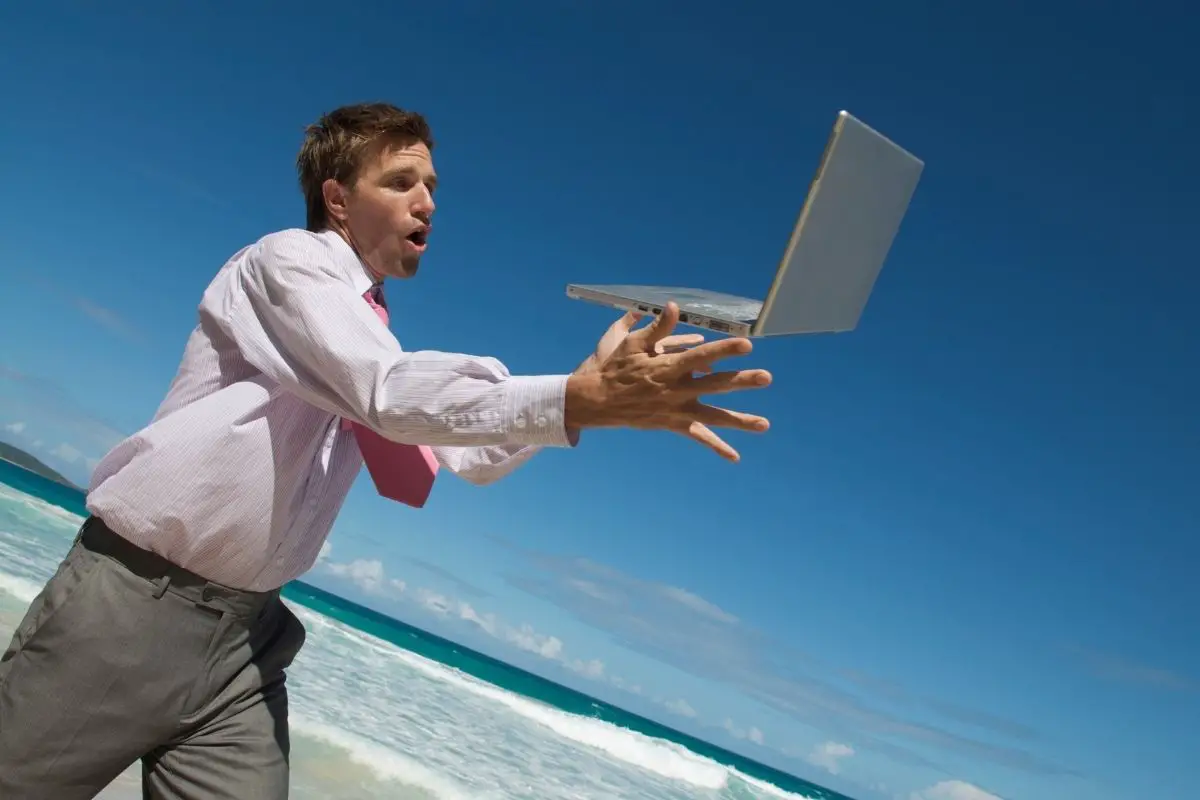
What happens if SSD falls? Solid-state drives are more durable than hard disk drives, but they are not immune to damage. In this blog post, I will take a look at what can happen if you drop your SSD and the truth about dropping your solid-state drive.
In summary, Nothing happens if your SSD falls because it is shockproof for a certain level. If the SSD falls from a higher height, then it may not be shockproof anymore and will be damaged.
Are SSDs Shockproof?
When it comes to computer storage, there are two main types of devices: hard disk drives (HDDs) and solid-state drives (SSDs). HDDs have been around for decades, and they are the traditional choice for most PC users. SSDs, on the other hand, are a newer technology that is becoming increasingly popular.
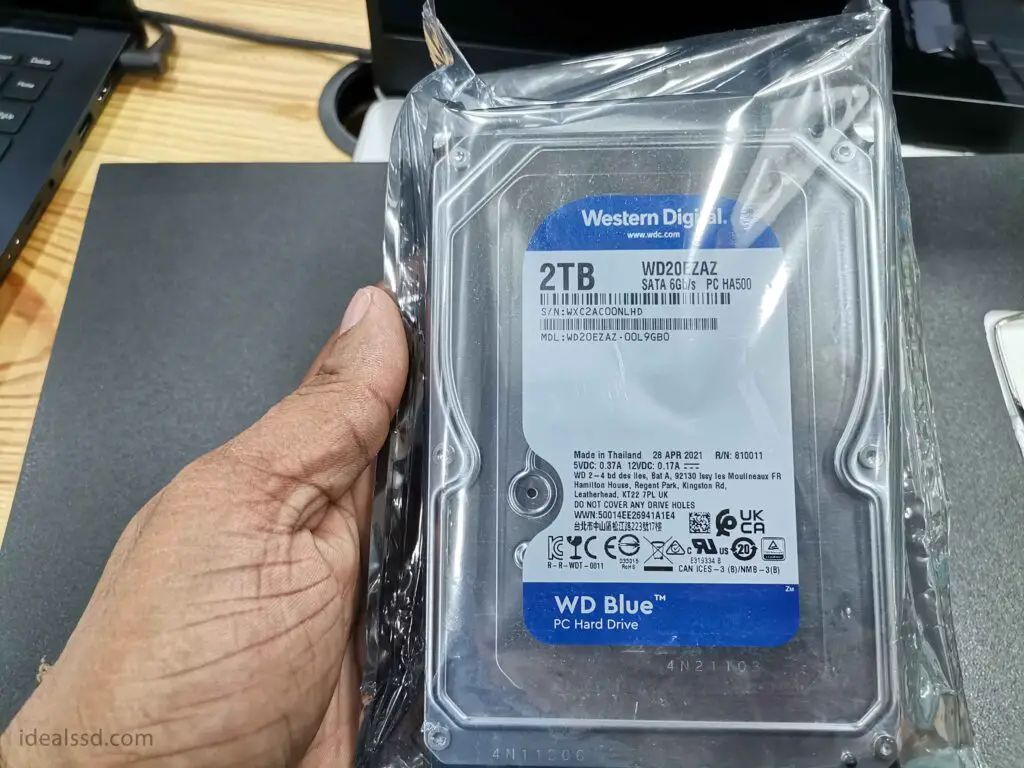
One of the main advantages of SSDs is that they are much more resistant to physical shocks than HDDs. This is because SSDs have no moving parts, meaning that there is nothing to break if the drive is dropped or otherwise subject to impact. In contrast, HDDs contain spinning disks that are very delicate, and a single drop can damage the disk and render the drive unusable. Take a look at the below image. Can you see the disk and arm?
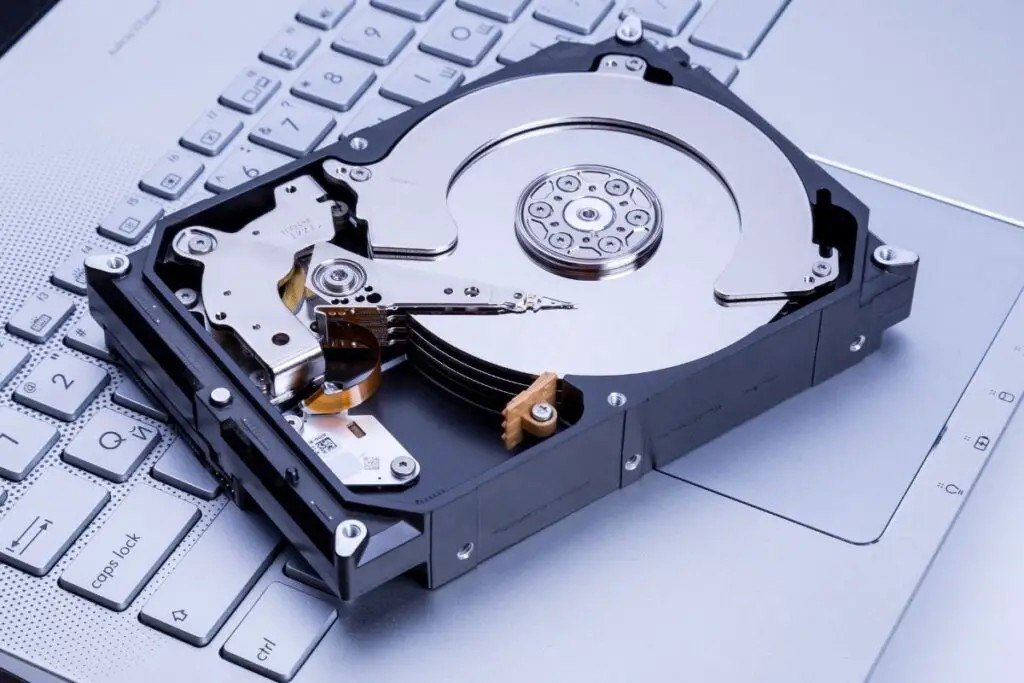
As a result, SSDs are often considered to be a more durable option, and they are increasingly being used in laptops and other portable devices where there is a risk of the device being dropped.
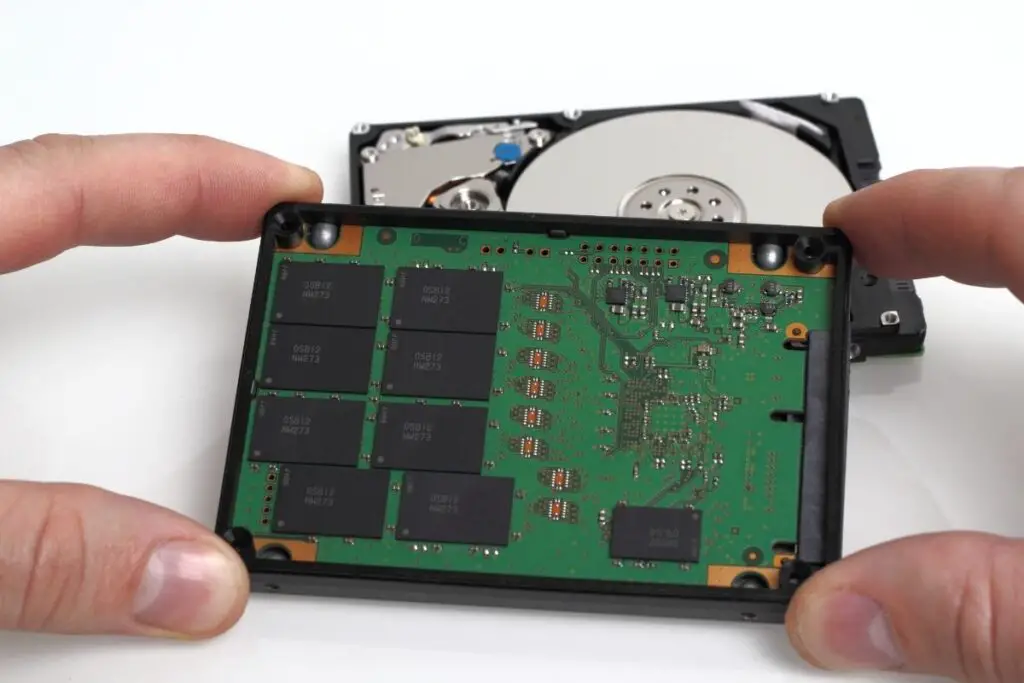
However, it is important to note that SSDs are not completely immune to damage from physical shocks. While the lack of moving parts makes them less susceptible to breakage, SSDs can still be damaged if they are dropped.
Let’s make sure that by dropping what I mean is accidental drops. Like you’re working on your computer one day and it falls off the desk. Not like you take it out and drop it for fun 🙂 or you take your SSD to the highest story in your building and drop it.
Of course, if you intentionally do such a thing, then most likely your SSD will be damaged. No matter how tough they are, they can’t withstand such impact and high falls.
In particular, the SSD controller chip is vulnerable to impact, and a drop that damages this chip can render the drive unusable. As such, it is important to be careful with your SSD and to avoid dropping it or subjecting it to other physical shocks.
Why Do People Use SSDs Instead of HDDs?
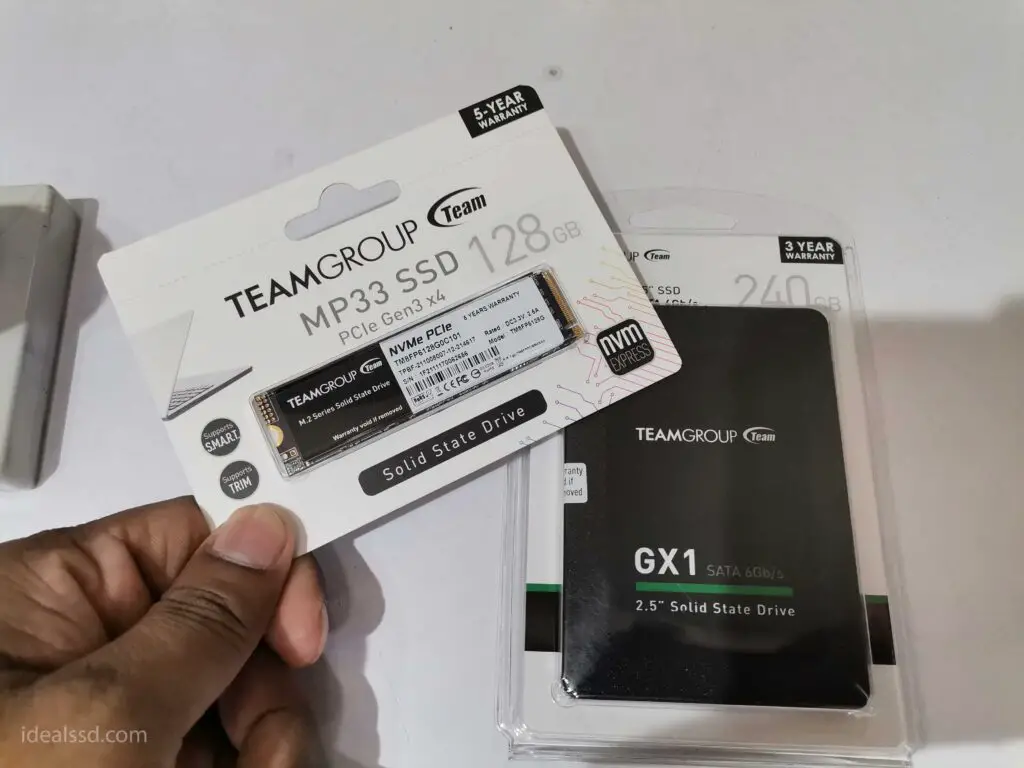
There are several reasons why people use SSDs instead of HDDs.
- One reason is that SSDs are much faster than HDDs. They can boot up your computer in a matter of seconds, and they can also load applications and files almost instantaneously.
- SSDs are more energy-efficient than HDDs. They don’t require as much power to operate, so they can help extend the battery life of laptops.
- Unlike HDDs, which have moving parts that can fail over time, SSDs have no moving parts and are therefore much more durable. As a result, they tend to last much longer than HDDs.
- emit zero noise. This is because SSDs don’t have any moving internals components unlike HDDs which have spinning disks.
- The lack of moving internals also makes SSDs more resistant to physical shocks and drops.
So those are some of the reasons why people use SSDs instead of HDDs. To find an ideal SSD for your PC refer to these articles
- Best SSD For Intel 12th Gen Computers
- Best SSD For Ryzen 7 or Higher
- How Much SSD Should You Buy for Gaming?
What Happens if SSD Falls From a Higher Height?
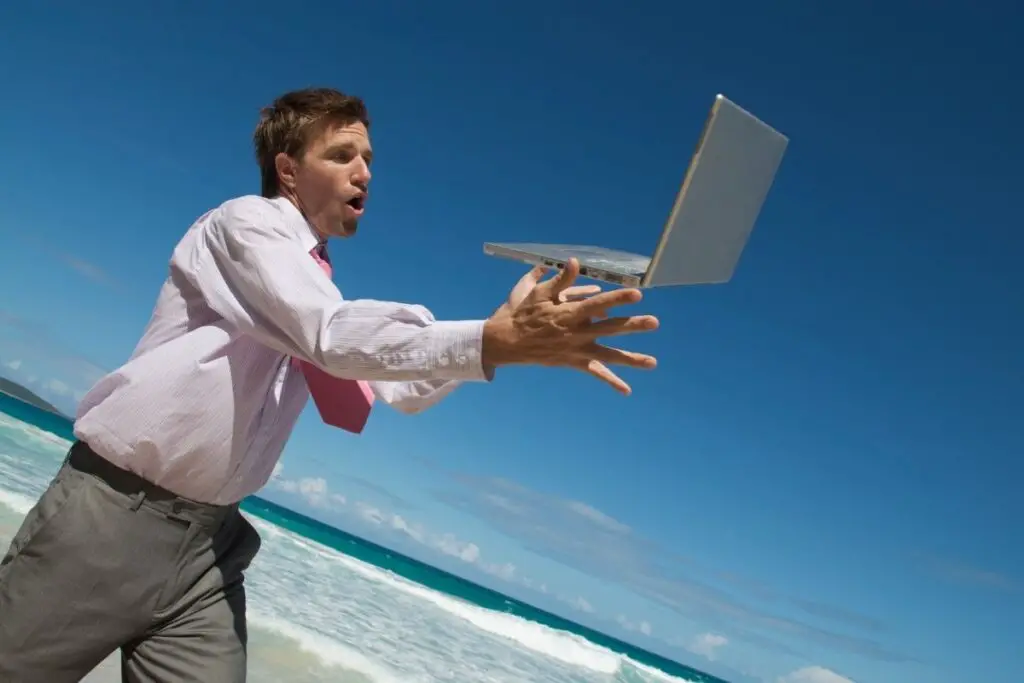
While SSDs are designed to be shock-resistant if they are dropped from a considerable height they can become damaged. The connectors on the SSD can break, which will prevent the device from being able to connect to a computer. In addition, the chips and circuitry on the SSD can become damaged, which will cause data loss or corruption. If an SSD is dropped, it is important to check the device for damage and ensure that the data is still intact before using it again. Otherwise, you may end up with a bricked SSD that is unusable.
I remember that I dropped my SSD when I try to install it on my computer. I was so nervous that I had damaged it. Luckily, it still worked perfectly fine after I installed it. Actually, it felt 4 feet onto the ground, face first. So if you accidentally drop your SSD, don’t worry too much. Just check for any physical damages and make sure that your data is still intact before using it again.
Did you know that SSDs are also more resistant to extreme temperatures? They can function in both hot and cold environments without issue, whereas HDDs can be damaged by extreme temperatures. So, if you’re worried about your SSD overheating or freezing, don’t be! To know more about SSD temperature ranges refer to this. Safe Operating Temperature For SSD. Also if you happen to work in an area that has extreme weather conditions refer to this. What Is a Wide Temperature SSD? (Industrial Grade SSD)
Can SSD Be Damaged by Movement?
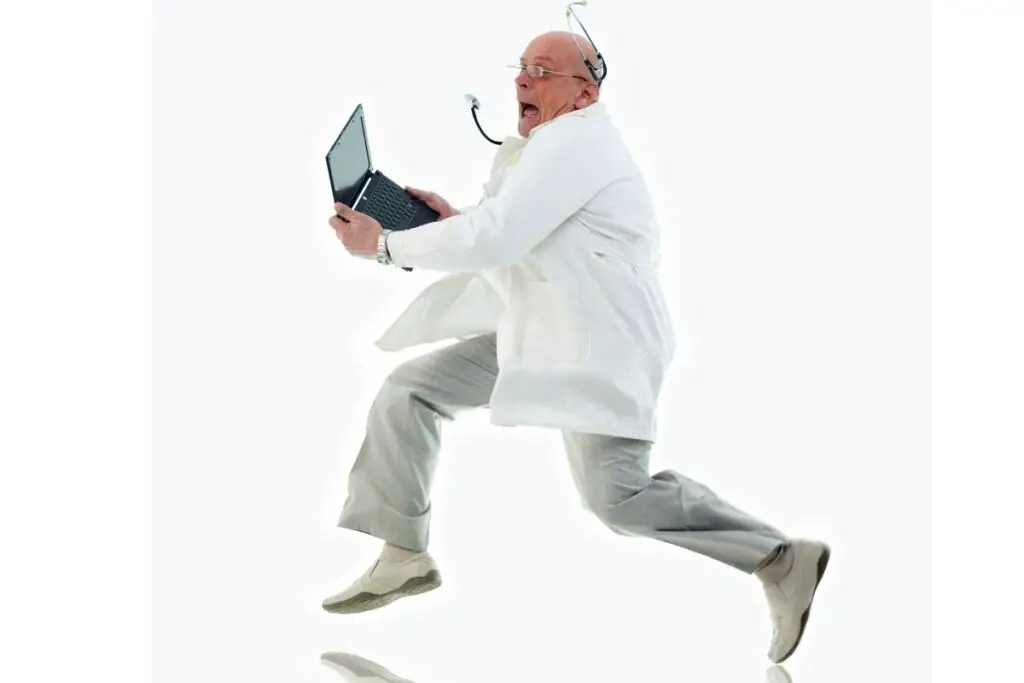
SSDs are a type of data storage device that uses flash memory to store information. SSDs are typically more durable and reliable than HDDs, which makes them ideal for use in laptops and other portable devices. However, SSDs can be damaged by physical shocks and vibrations, as well as by exposure to extreme temperatures.
While it is unlikely that an SSD will be damaged by everyday movements, it is important to take care when handling the device. If an SSD is dropped or otherwise subjected to a significant impact, the internal components can be damaged, leading to data loss.
I Just Dropped My Laptop From a Bed. It Has No Physical Signs of Damage and Has an SSD Drive. Is It Okay?

Probably…
If you’ve just dropped your laptop from a bed, there’s a good chance it’s okay. Unless there is physical damage, or something has come loose on the inside, it’s probably fine. This is especially true if your laptop has an SSD drive. SSDs have no moving parts, so they are less likely to be damaged by a drop than an HDD.
If your laptop has both an SSD and an HDD, you may want to run a CHKDSK on the HDD just to be sure. Even if there is no obvious damage, it’s always wise to back up your data in case of any future problems.
References
- How Sturdy (Shock-Proof) is an SSD? https://superuser.com/questions/789949/how-sturdy-shock-proof-is-an-ssd

